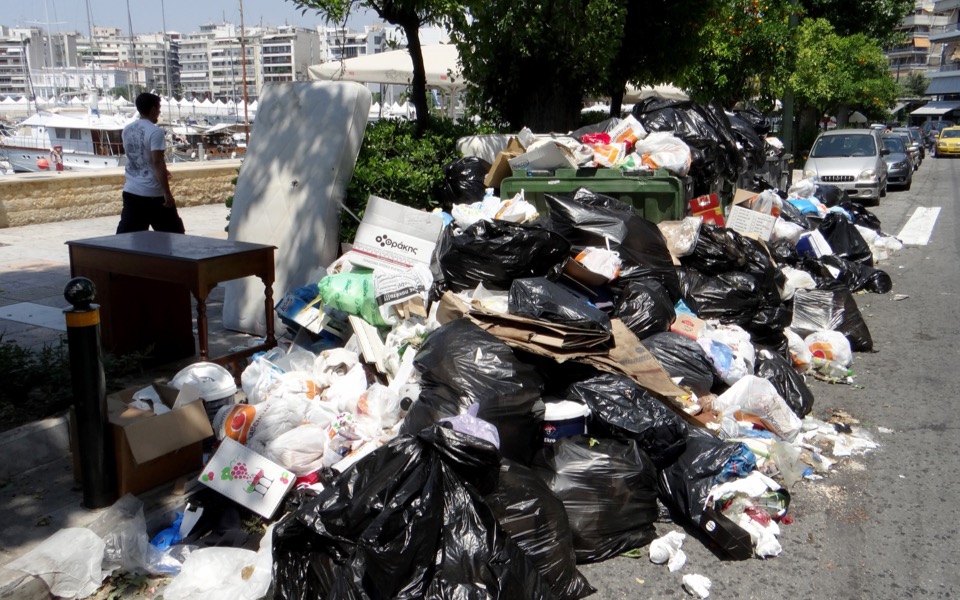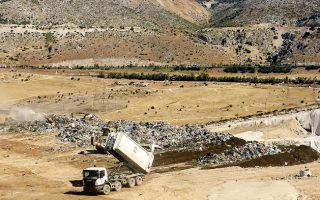The trash heap phenomenon

The sudden yet inevitable appearance of stinking heaps of trash in Greece’s cities, and in Athens and Thessaloniki in particular (which are especially vulnerable), is not some bizarre geological phenomenon. It is a political phenomenon and one that is not in the least bizarre in the sense that these trash heaps represent some of the key traits in the behavior of governments and municipal authorities, as well as a large section of labor leadership and society: four sides – four camps if you will – that are trapped in the constraints of their own narrow interests, preferring to undermine and slander one another rather than work together.
Organizations responsible for sanitation and cleanliness have always been a prize cut in the pie of Greece’s famous clientelist state. Their needs – or rather their sinister ambitions – are what dictated that workers in these bodies are hired on fixed-term contracts rather than granted permanent positions like the majority of civil service staff. It is a strategy which ensures that the worker is always in debt to the selfless colleagues who helped him get the fixed-term contract renewed every time it expired. He is held in a state of servitude that is supposed to be mitigated in some way every time that the hostages decide (sometimes out of justified desperation and others because they are convinced that political games need to be answered with political games and blackmail with blackmail) to hold the country’s cities temporarily hostage.
The current government failed to show any originality in this area (neither did the lords of local government, regardless of party affiliation, for that matter), as it has in so many other matters. It took the well-worn path, failing to take precautions against such action, dragging its feet when the crisis started to emerge, disregarding supervisory mechanisms and offering quick-fix solutions that fail to get to the heart of the matter. The government should, in fact, be praised by its predecessors for following tradition. They have no business giving highfalutin lectures on responsibility when it is a word (just a word, not a concept or action) they remember only in the excitement of being in the opposition.
As far as the collective “we” of society goes – broken into countless “mes” – yet again we have shown how much we each care for our cities. Not five minutes after adding trash to the heap, the “mes” are standing in front of it, sanctimoniously shouting: “Shame!” “Disgusting!”





